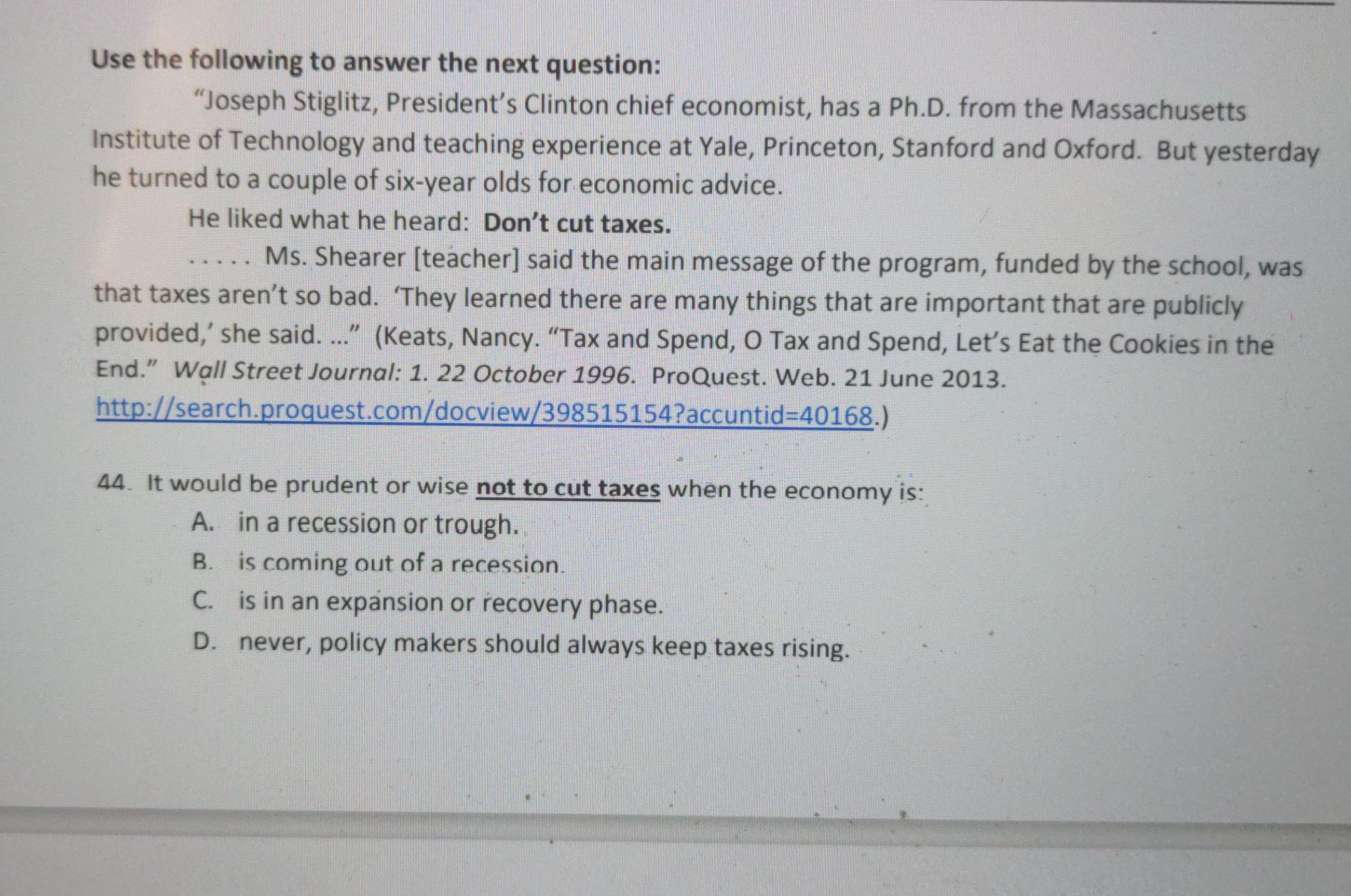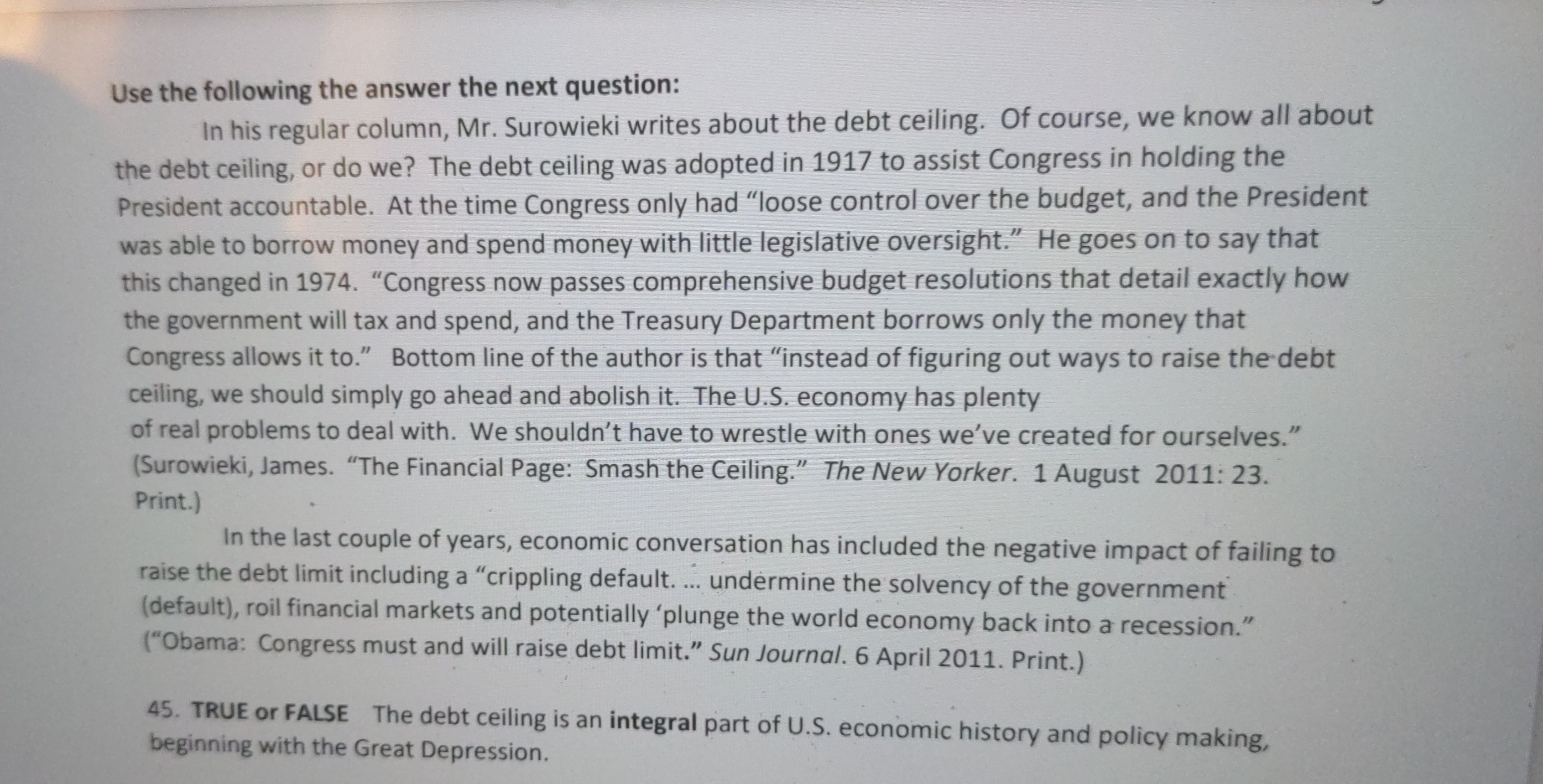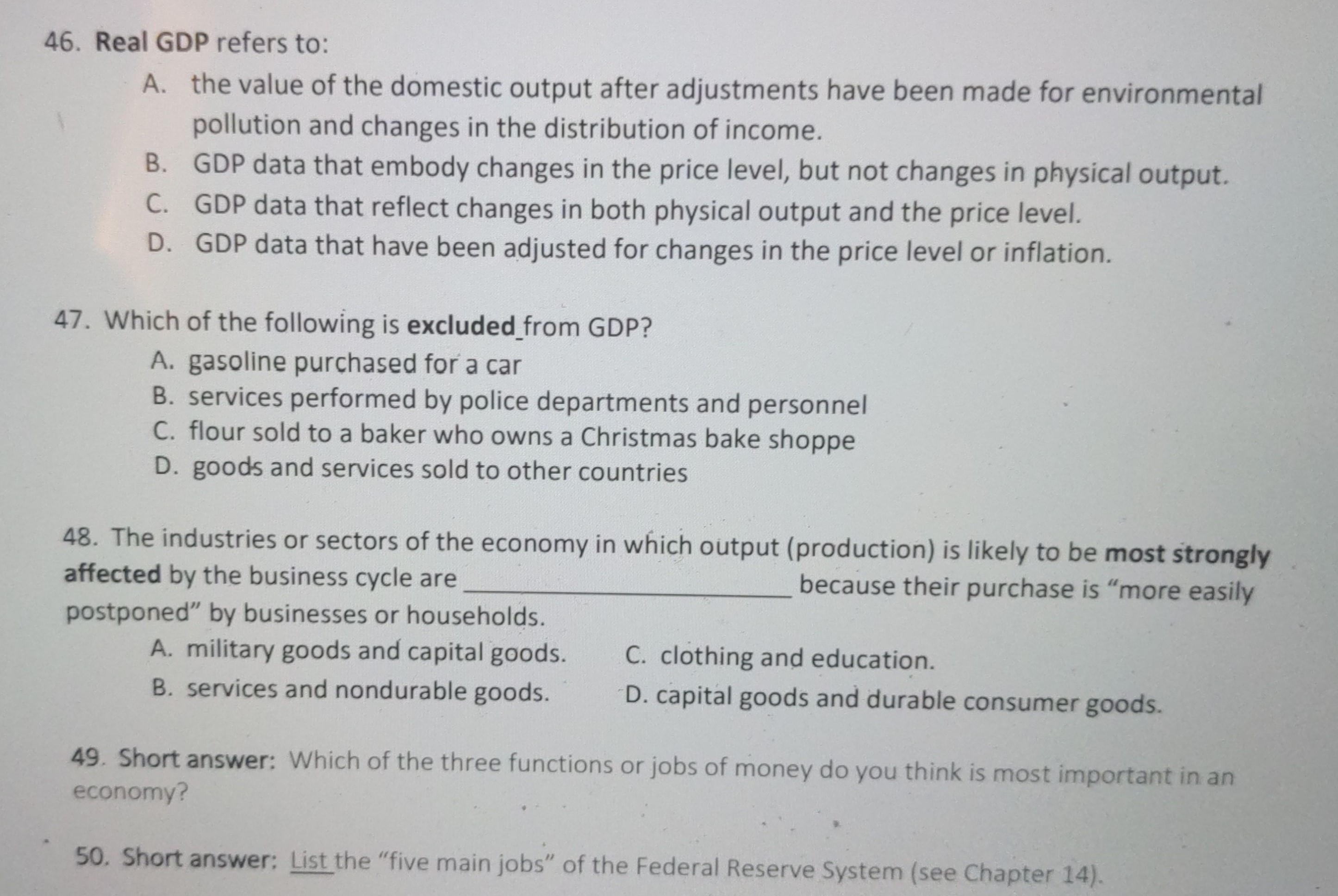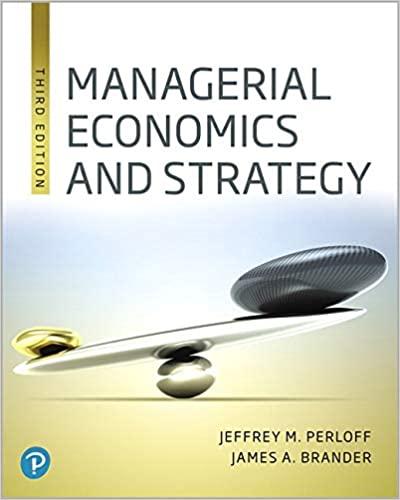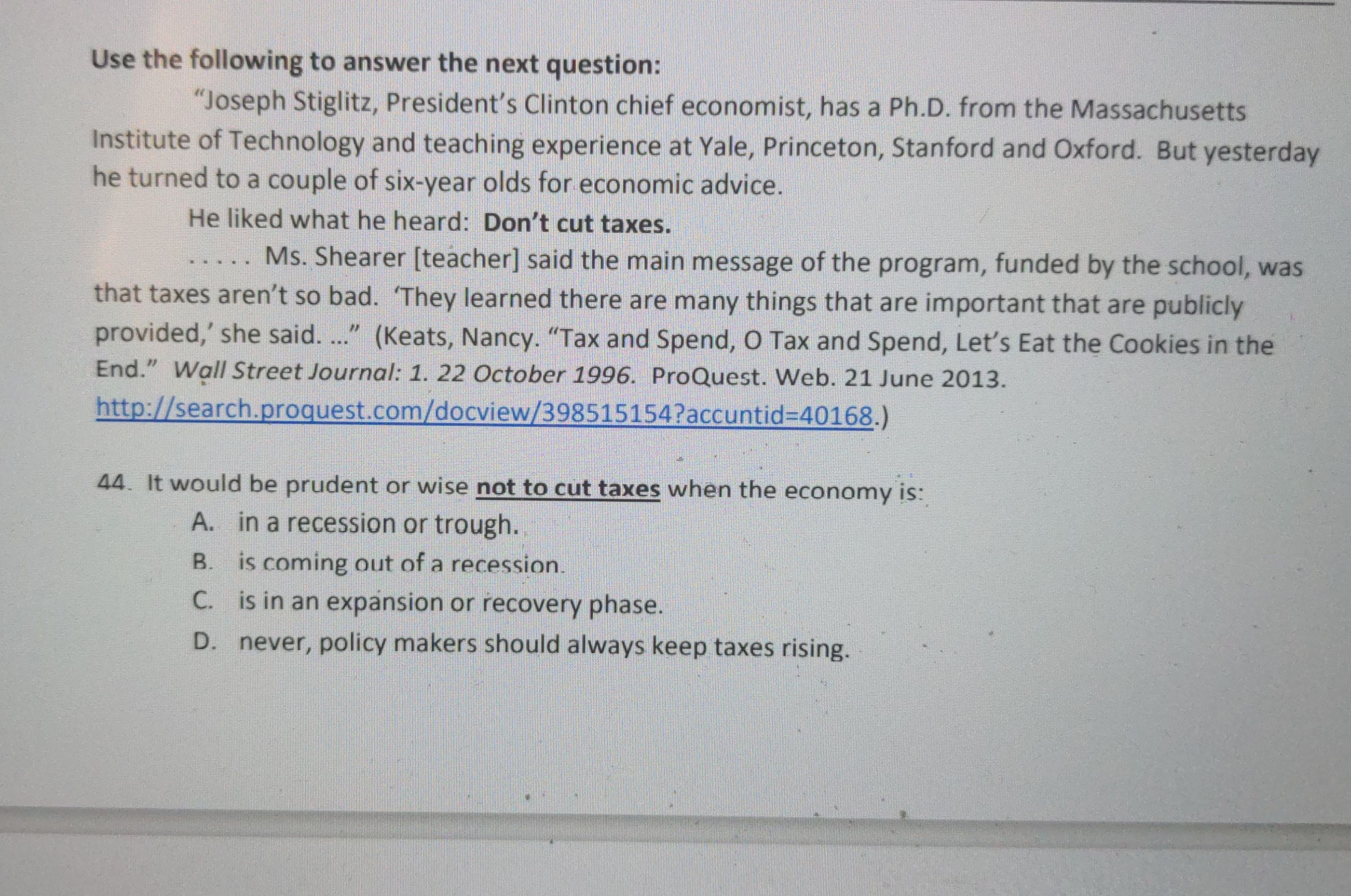
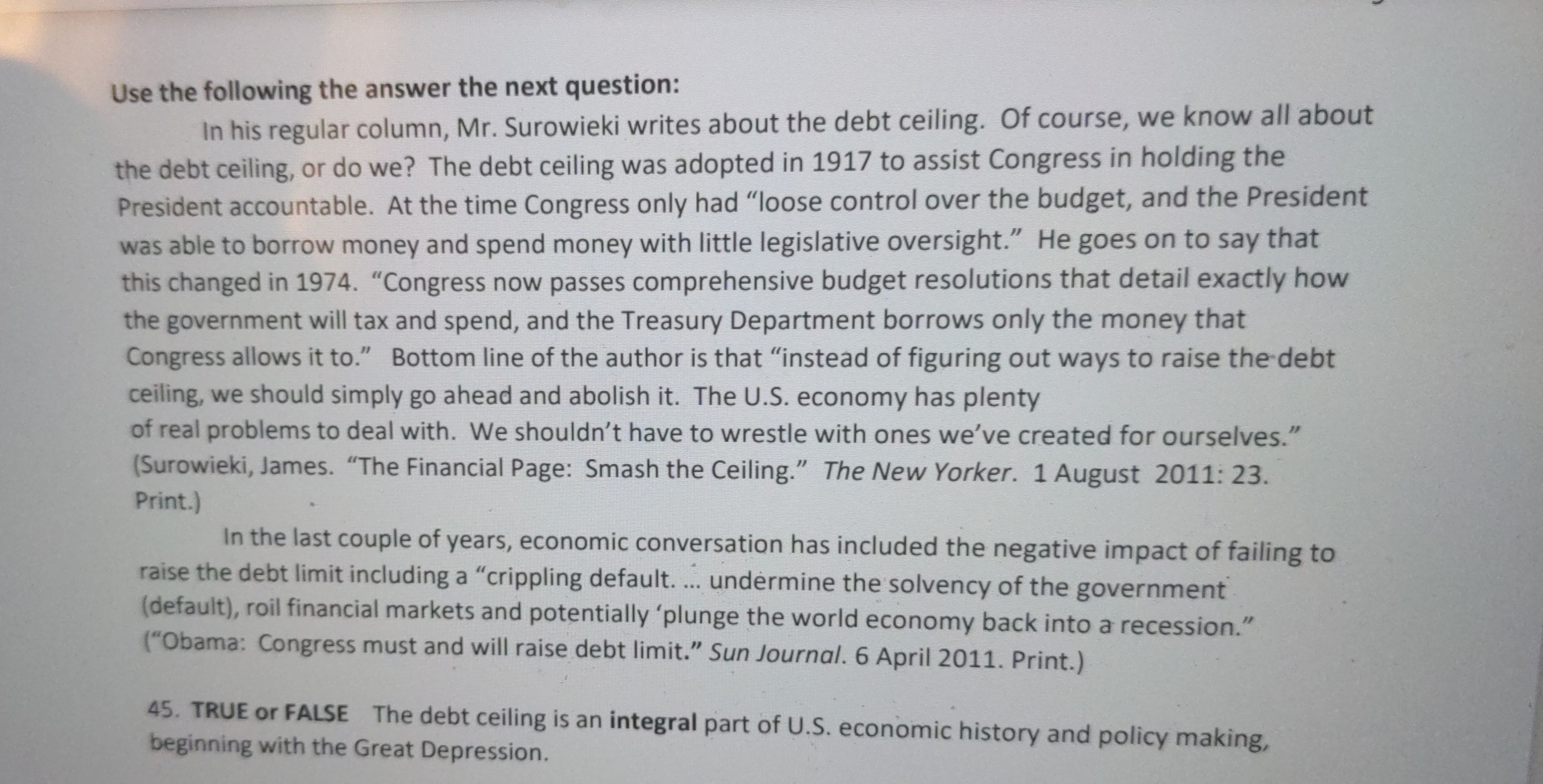
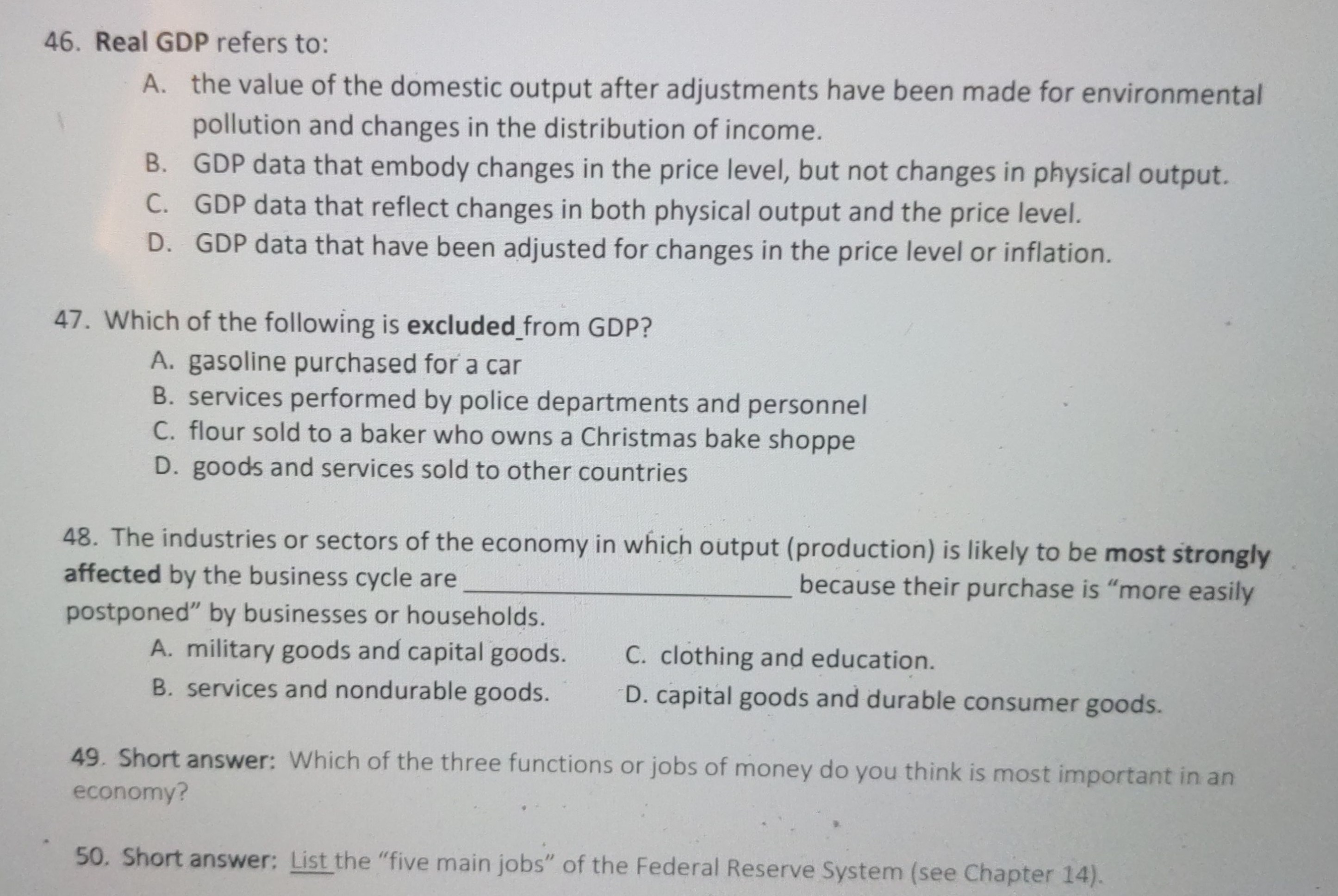
TRUE OR FALSE The debt ceiling is an integral part of U.S. economic history and policy making, beginning with the Great Depression
Use the following to answer the next question: "Joseph Stiglitz, President's Clinton chief economist, has a Ph.D. from the Massachusetts Institute of Technology and teaching experience at Yale, Princeton, Stanford and Oxford. But yesterday he turned to a couple of six-year olds for economic advice. He liked what he heard: Don't cut taxes. . . . . . Ms. Shearer [teacher] said the main message of the program, funded by the school, was that taxes aren't so bad. 'They learned there are many things that are important that are publicly provided,' she said. ..." (Keats, Nancy. "Tax and Spend, O Tax and Spend, Let's Eat the Cookies in the End." Wall Street Journal: 1. 22 October 1996. ProQuest. Web. 21 June 2013. http://search.proquest.com/docview/398515154?accuntid=40168.) 44. It would be prudent or wise not to cut taxes when the economy is: A. in a recession or trough. B. is coming out of a recession C. is in an expansion or recovery phase. D. never, policy makers should always keep taxes rising.Use the following the answer the next question: In his regular column, Mr. Surowieki writes about the debt ceiling. Of course, we know all about the debt ceiling, or do we? The debt ceiling was adopted in 1917 to assist Congress in holding the President accountable. At the time Congress only had "loose control over the budget, and the President was able to borrow money and spend money with little legislative oversight." He goes on to say that this changed in 1974. "Congress now passes comprehensive budget resolutions that detail exactly how the government will tax and spend, and the Treasury Department borrows only the money that Congress allows it to." Bottom line of the author is that "instead of figuring out ways to raise the debt ceiling, we should simply go ahead and abolish it. The U.S. economy has plenty of real problems to deal with. We shouldn't have to wrestle with ones we've created for ourselves." (Surowieki, James. "The Financial Page: Smash the Ceiling." The New Yorker. 1 August 2011: 23. Print.) In the last couple of years, economic conversation has included the negative impact of failing to raise the debt limit including a "crippling default. ... undermine the solvency of the government (default), roil financial markets and potentially 'plunge the world economy back into a recession." ("Obama: Congress must and will raise debt limit." Sun Journal. 6 April 2011. Print.) 45. TRUE or FALSE The debt ceiling is an integral part of U.S. economic history and policy making, beginning with the Great Depression.46. Real GDP refers to: A. the value of the domestic output after adjustments have been made for environmental pollution and changes in the distribution of income. B. GDP data that embody changes in the price level, but not changes in physical output. C. GDP data that reflect changes in both physical output and the price level. D. GDP data that have been adjusted for changes in the price level or inflation. 47. Which of the following is excluded from GDP? A. gasoline purchased for a car B. services performed by police departments and personnel C. flour sold to a baker who owns a Christmas bake shoppe D. goods and services sold to other countries 48. The industries or sectors of the economy in which output (production) is likely to be most strongly affected by the business cycle are because their purchase is "more easily postponed" by businesses or households. A. military goods and capital goods. C. clothing and education. B. services and nondurable goods. D. capital goods and durable consumer goods. 49. Short answer: Which of the three functions or jobs of money do you think is most important in an economy ? 50. Short answer: List the "five main jobs" of the Federal Reserve System (see Chapter 14)



